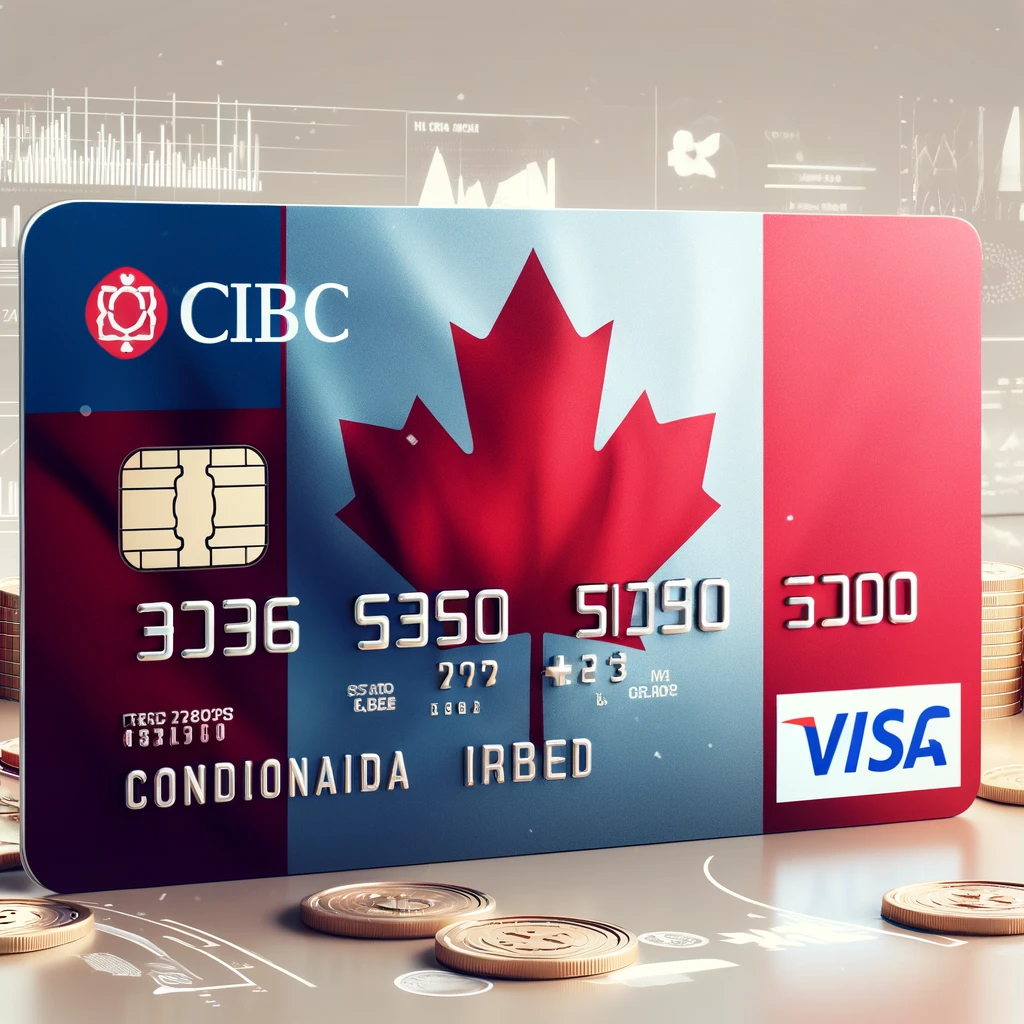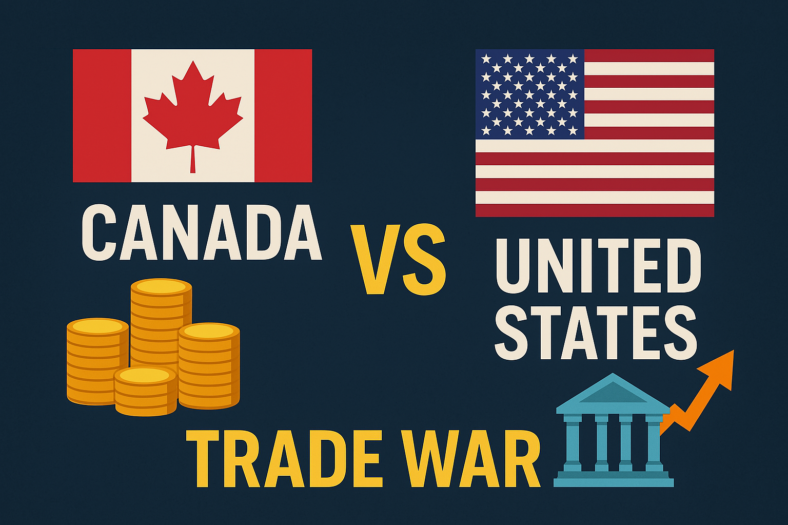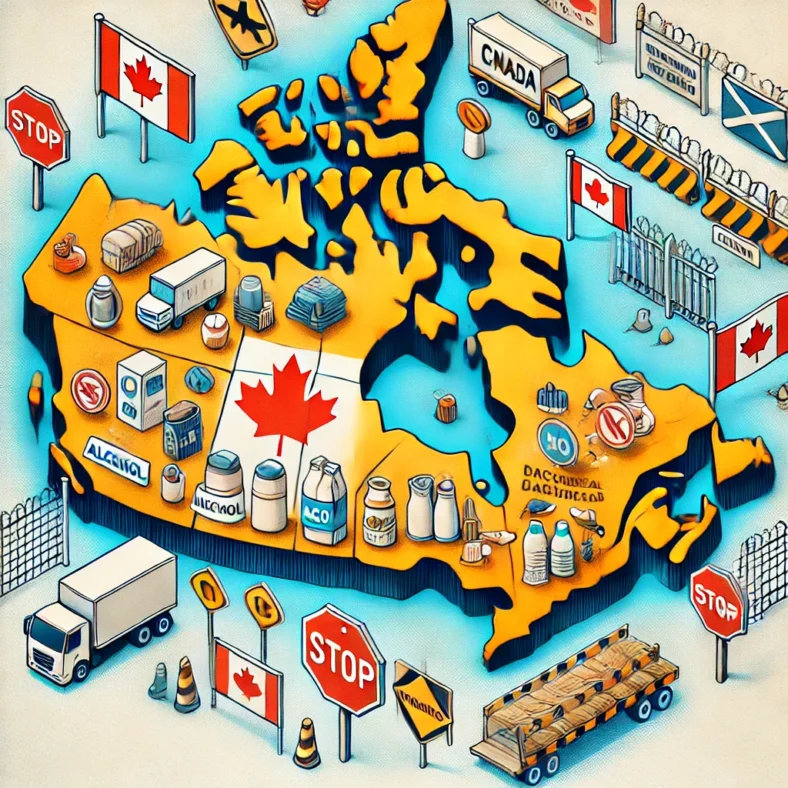Our Top Picks of the Best CIBC Credit Cards
| Compare | Ratestead Rating | Annual Fee | Annual Rewards | Welcome Bonus | Learn More |
|---|
| APPLY NOW | /10 |
Who are CIBC and how do their credit cards work?
The Canadian Imperial Bank of Commerce (CIBC) is one of Canada’s major banks, with a rich history dating back to 1867. As one of the “Big Five” banks in Canada, CIBC offers a wide range of financial products and services, including banking, investment, and lending solutions. Among its offerings, CIBC is renowned for its diverse portfolio of credit cards, catering to the varying needs and preferences of Canadian consumers.
CIBC credit cards operate on the basis of a revolving credit line, allowing cardholders to make purchases and access credit up to a predetermined limit. These cards are accepted globally wherever credit cards are recognized, providing convenience and flexibility for both everyday transactions and larger purchases.
The functionality of CIBC credit cards extends beyond simple payment methods. Depending on the specific card, they offer a variety of features and benefits, such as:
Rewards Programs: Many CIBC credit cards offer rewards programs that allow cardholders to earn points, miles, or cashback on their purchases. These rewards can often be redeemed for travel, merchandise, gift cards, statement credits, or other perks, enhancing the value of using the card for everyday spending.
Travel Benefits: Some CIBC credit cards come with travel-related perks such as travel insurance, airport lounge access, flight discounts, and waived foreign transaction fees. These benefits can be particularly appealing to frequent travelers looking to maximize their travel experience and savings.
Insurance Coverage: CIBC credit cards may offer various types of insurance coverage, including extended warranty protection, purchase protection, rental car insurance, and travel medical insurance. These features provide added peace of mind and protection for cardholders’ purchases and travel arrangements.
Low Interest Rates or Introductory Offers: Certain CIBC credit cards may come with low introductory interest rates or promotional offers, such as 0% APR on balance transfers or purchases for a limited time. These offers can help cardholders save on interest charges and manage their finances more effectively.
Additional Perks: Depending on the card, CIBC may offer additional perks such as concierge services, access to exclusive events, discounts at partner merchants, and complimentary upgrades or benefits at hotels and resorts.
Overall, CIBC credit cards are designed to provide value, convenience, and flexibility to cardholders, whether they’re looking to earn rewards, save on travel expenses, or enjoy added peace of mind with insurance coverage. Understanding how these cards work and the specific benefits they offer can help consumers make informed decisions when choosing the best CIBC credit card for their needs and preferences.
Pros and cons of CIBC credit cards
Pros:
Diverse Range of Options: CIBC offers a wide variety of credit cards, catering to different lifestyles, spending habits, and financial goals. Whether you’re a frequent traveler, a diligent saver, or someone who prefers simplicity, CIBC likely has a card suited to your needs.
Rewards Programs: Many CIBC credit cards come with rewards programs that allow cardholders to earn points, miles, or cashback on their purchases. These rewards can be redeemed for travel, merchandise, gift cards, statement credits, and more, providing tangible benefits for using the card for everyday spending.
Travel Benefits: Several CIBC credit cards offer travel-related perks such as travel insurance, airport lounge access, flight discounts, and waived foreign transaction fees. These benefits can be especially valuable for frequent travelers, helping them save money and enjoy a smoother travel experience.
Insurance Coverage: CIBC credit cards often come with various types of insurance coverage, including extended warranty protection, purchase protection, rental car insurance, and travel medical insurance. These features provide added peace of mind and protection for cardholders’ purchases and travel arrangements.
Introductory Offers: Some CIBC credit cards may feature low introductory interest rates, promotional APRs on balance transfers, or welcome bonuses, allowing cardholders to save on interest charges or earn bonus rewards during the introductory period.
Cons:
Annual Fees: Many CIBC credit cards come with annual fees, which can vary depending on the card’s features and benefits. While the value of the card’s perks may outweigh the cost of the annual fee for some cardholders, others may prefer fee-free options to avoid additional expenses.
Interest Rates: If you carry a balance on your CIBC credit card, you may incur interest charges at relatively high annual percentage rates (APRs). It’s essential to pay your balance in full each month to avoid accruing interest and minimize the overall cost of using the card.
Eligibility Requirements: Some of the more exclusive or premium CIBC credit cards may have stringent eligibility criteria, such as high income requirements or excellent credit scores. Not all applicants may qualify for these cards, limiting access to certain benefits and features.
Foreign Transaction Fees: While some CIBC credit cards waive foreign transaction fees, others may charge a fee for purchases made in foreign currencies. If you frequently travel abroad or make purchases from international merchants, these fees can add up over time and increase the cost of using the card.
Complexity of Rewards Programs: While rewards programs can offer significant value, they can also be complex to navigate, with varying redemption options, earning rates, and restrictions. Cardholders may need to invest time and effort into understanding how to maximize their rewards effectively.
Overall, while CIBC credit cards offer numerous benefits and perks, it’s essential to weigh the pros and cons carefully to determine which card aligns best with your financial needs and preferences.
What types of CIBC credit cards are available in Canada?
CIBC offers a wide range of credit cards in Canada, each designed to meet different financial needs and preferences. Here’s an overview of the main types of CIBC credit cards available:
1. Rewards Credit Cards
These cards allow cardholders to earn points, miles, or cashback on their purchases, which can be redeemed for various rewards.
CIBC Aventura® Visa Infinite Card*: Ideal for travelers, this card offers Aventura points that can be redeemed for travel, merchandise, gift cards, and more. It also includes travel insurance and other travel-related perks.
CIBC Dividend® Visa Infinite Card*: This card offers cashback rewards on everyday purchases, with higher earn rates for categories like groceries and gas. It also comes with travel insurance and purchase protection.
2. Travel Credit Cards
Travel-focused credit cards offer rewards and benefits tailored to travelers, such as travel insurance, airport lounge access, and no foreign transaction fees.
CIBC Aeroplan® Visa Infinite Card*: This card is perfect for Air Canada flyers, offering Aeroplan points on purchases. It includes travel insurance, priority boarding, and other Air Canada benefits.
CIBC Aventura® Gold Visa Card*: This card provides Aventura points that can be redeemed for travel, along with travel insurance and other travel-related benefits.
3. Cashback Credit Cards
Cashback credit cards provide a percentage of cash back on eligible purchases, making them ideal for those who prefer straightforward rewards.
CIBC Dividend® Platinum Visa Card*: Offers cashback rewards on everyday purchases, with no annual fee and various insurance coverages.
CIBC Dividend® Visa Card for Students*: Tailored for students, this card provides cashback rewards with no annual fee, helping young adults build credit and earn rewards on their spending.
4. Low-Interest Credit Cards
These cards are designed for cardholders who may carry a balance and want to minimize interest charges.
- CIBC Select Visa Card*: Offers a low-interest rate on purchases and balance transfers, making it a good choice for those looking to reduce interest costs.
5. No-Fee Credit Cards
No-fee credit cards do not charge an annual fee, making them a cost-effective option for budget-conscious consumers.
CIBC Tim Hortons® Double Double™ Visa Card*: This card combines a no-fee structure with rewards points that can be redeemed for Tim Hortons products.
CIBC Classic Visa Card*: A straightforward, no-annual-fee card offering basic benefits and purchase protection.
6. Student Credit Cards
Designed for students, these cards help young adults build their credit history while offering rewards and benefits suited to their lifestyle.
- CIBC Aventura® Visa Card for Students*: Offers Aventura points on purchases, travel insurance, and no annual fee, helping students earn rewards and manage their finances.
7. Business Credit Cards
These cards are tailored for business owners, providing rewards and benefits that cater to business expenses and travel needs.
CIBC bizline® Visa Card for Small Business*: Offers flexible credit limits and rewards tailored to business spending, along with expense management tools.
CIBC Aerogold® Visa Card for Business*: Provides Aeroplan points on business purchases, travel insurance, and other business-related benefits.
8. Specialty Credit Cards
Specialty cards offer unique benefits or are co-branded with specific retailers or organizations.
CIBC Costco® Mastercard®: Exclusively for Costco members, this card offers cashback rewards on Costco and other purchases, with no annual fee for Costco members.
CIBC Petro-Points™ Mastercard®: Provides Petro-Points on purchases, which can be redeemed for fuel and other Petro-Canada products.
By offering such a diverse range of credit cards, CIBC ensures that there is a suitable option for almost every Canadian consumer, whether they are looking for rewards, travel benefits, low interest rates, or no annual fees.
How to find the best CIBC credit cards in Canada
Finding the best CIBC credit card for your needs involves evaluating your spending habits, financial goals, and the features and benefits of different cards. Here’s a step-by-step guide to help you identify the best CIBC credit card for you:
1. Assess Your Spending Habits and Financial Goals
Understanding your spending habits and financial goals is crucial in selecting a credit card. Consider the following:
- Monthly Expenses: Calculate your monthly expenses on categories like groceries, gas, dining, travel, and entertainment.
- Financial Goals: Determine if you want to earn rewards (points, miles, cashback), save on interest with low APR, or benefit from travel perks.
2. Determine the Type of Rewards You Prefer
CIBC offers various types of rewards credit cards. Identify which type of rewards align with your preferences:
- Travel Rewards: If you travel frequently, consider cards that offer points redeemable for travel, such as the CIBC Aventura® Visa Infinite* Card or CIBC Aeroplan® Visa Infinite* Card.
- Cashback: If you prefer straightforward cash rewards, the CIBC Dividend® Visa Infinite* Card or CIBC Dividend® Platinum Visa* Card might be suitable.
- Retail Rewards: For rewards tied to specific retailers, look at cards like the CIBC Costco® Mastercard® or CIBC Petro-Points™ Mastercard®.
3. Evaluate Card Features and Benefits
Each CIBC credit card comes with different features and benefits. Look for cards that offer:
- Rewards Rate: Higher earn rates on categories you spend the most.
- Sign-Up Bonuses: Attractive welcome bonuses that can provide a head start on earning rewards.
- Annual Fees: Weigh the cost of the annual fee against the benefits provided. Some cards with higher fees offer more valuable perks.
- Additional Perks: Travel insurance, purchase protection, extended warranty, airport lounge access, and other perks that add value to the card.
4. Consider Interest Rates and Fees
If you plan to carry a balance, focus on the interest rates and fees:
- APR: Look for cards with low annual percentage rates (APRs) on purchases and balance transfers.
- Foreign Transaction Fees: If you travel internationally, consider cards that waive foreign transaction fees.
- Annual Fees: Choose a card with an annual fee that aligns with the value you’ll get from its rewards and benefits.
5. Review Eligibility Requirements
Ensure you meet the eligibility criteria for the cards you’re considering:
- Credit Score: Check if your credit score meets the required threshold for the card.
- Income Requirements: Some cards, especially premium ones, may have minimum income requirements.
6. Compare Multiple Cards
Use comparison tools and resources to evaluate different CIBC credit cards side by side:
- CIBC Website: The CIBC website offers detailed information on all their credit cards, including benefits, fees, and eligibility requirements.
- Comparison Websites: Sites like RateSheet provide side-by-side comparisons of credit card features, rewards, and benefits.
- Customer Reviews: Read reviews from current cardholders to gain insights into the card’s advantages and potential drawbacks.
7. Utilize Online Calculators and Tools
Many financial websites offer calculators and tools to help you estimate the rewards you could earn based on your spending habits:
- Rewards Calculators: Input your monthly spending to see how many points, miles, or cashback you could earn with different cards.
- Balance Transfer Calculators: Estimate potential savings from balance transfers if you’re looking to consolidate debt.
8. Seek Professional Advice
If you’re unsure which card is best for your financial situation, consider consulting with a financial advisor who can provide personalized recommendations based on your goals and circumstances.
Finding the best CIBC credit card involves a thorough assessment of your spending habits, financial goals, and the specific features and benefits of each card. By carefully comparing options and considering all relevant factors, you can select a credit card that maximizes your rewards, savings, and overall financial well-being.
How to apply for a CIBC credit card
Applying for a CIBC credit card in Canada involves several straightforward steps. Here’s a detailed guide to help you through the application process:
1. Choose the Right CIBC Credit Card
Before applying, ensure you have chosen the CIBC credit card that best suits your financial needs and goals. Refer to the previous steps on how to find the best CIBC credit card for more guidance.
2. Check Eligibility Requirements
Ensure you meet the eligibility criteria for the specific CIBC credit card you are interested in. Typical requirements include:
- Age: You must be the age of majority in your province or territory (usually 18 or 19 years old).
- Canadian Residency: You must be a Canadian resident.
- Credit Score: Check if your credit score meets the required threshold for the card.
- Income Requirements: Some cards have minimum income requirements.
3. Gather Necessary Information
Prepare the following information, which is typically required for the application:
- Personal Information: Full name, date of birth, social insurance number (optional but recommended for credit checks), and contact details.
- Address: Current residential address and previous addresses if you’ve moved in the past two years.
- Employment Information: Employment status, employer’s name, job title, and income details.
- Financial Information: Information about your assets, liabilities, and monthly housing payments (rent or mortgage).
4. Apply Online
The quickest and most convenient way to apply for a CIBC credit card is through the CIBC website. Here’s how:
- Visit the CIBC Website: Go to the official CIBC website and navigate to the credit cards section.
- Select the Card: Choose the credit card you want to apply for and click on the “Apply Now” button.
- Fill Out the Application Form: Complete the online application form with your personal, employment, and financial information.
- Review and Submit: Review the information you’ve provided to ensure it’s accurate, then submit your application.
5. Apply In-Branch
If you prefer, you can apply for a CIBC credit card in person at a CIBC branch. Here’s how:
- Find a Branch: Use the branch locator on the CIBC website to find a branch near you.
- Visit the Branch: Go to the branch with your identification documents (e.g., driver’s license, passport) and proof of income (e.g., pay stubs, T4 slips).
- Speak with a Representative: A CIBC representative will help you complete the application process.
6. Apply by Phone
You can also apply for a CIBC credit card by calling CIBC customer service. Here’s how:
- Call CIBC: Dial the CIBC customer service number provided on their website.
- Provide Information: Provide the necessary personal, employment, and financial information over the phone to the customer service representative.
- Submit Application: The representative will complete and submit the application on your behalf.
7. Wait for Approval
After submitting your application, CIBC will review your information and conduct a credit check. This process typically takes a few business days, but it can vary.
- Online Applications: You may receive instant approval or a decision within a few days.
- In-Branch or Phone Applications: The representative will inform you about the expected timeline for approval.
8. Receive Your Card
If your application is approved, you will receive your CIBC credit card by mail within 7-10 business days. Along with the card, you’ll receive instructions on how to activate it.
9. Activate Your Card
To activate your new CIBC credit card:
- Online: Log in to your CIBC Online Banking account and follow the activation instructions.
- By Phone: Call the activation number provided with your card and follow the automated instructions.
- In-Branch: Visit a CIBC branch to activate your card with the assistance of a representative.
Applying for a CIBC credit card in Canada is a straightforward process that can be done online, in-branch, or by phone. By following these detailed steps, you can choose the right card, ensure you meet the eligibility requirements, and successfully complete the application process. Once approved, you’ll receive your card and can start enjoying its benefits.
What is credit score and how much do I need for a CIBC credit card
Understanding Credit Scores
A credit score is a numerical representation of your creditworthiness, based on your credit history. It ranges from 300 to 900 in Canada, with higher scores indicating better creditworthiness. Credit scores are used by lenders, including CIBC, to assess the risk of lending you money through credit cards, loans, and other financial products.
Factors Influencing Credit Scores
- Payment History (35%): Your record of on-time payments for credit cards, loans, and other debts.
- Credit Utilization (30%): The amount of credit you’re using compared to your total available credit.
- Length of Credit History (15%): How long you’ve had credit accounts.
- Credit Mix (10%): The variety of credit accounts, such as credit cards, mortgages, and loans.
- New Credit Inquiries (10%): The number of recent applications for credit, which can slightly lower your score temporarily.
Credit Score Ranges
- Excellent (800-900): Exceptional creditworthiness, easy approval for most credit products.
- Very Good (720-799): Strong credit history, likely to be approved with favorable terms.
- Good (660-719): Good credit history, generally approved for most credit products.
- Fair (620-659): Average credit history, might be approved but with less favorable terms.
- Poor (300-619): Challenged credit history, difficult to get approved for new credit.
Credit Score Requirements for CIBC Credit Cards
The required credit score for a CIBC credit card varies based on the type of card and its features. Here’s a general guideline:
Premium Cards (e.g., Visa Infinite, World Elite Mastercard)
- Examples: CIBC Aventura® Visa Infinite* Card, CIBC Aeroplan® Visa Infinite* Card
- Credit Score Needed: 720 or higher (Very Good to Excellent)
- Details: These cards offer extensive rewards and benefits but require a strong credit history and sometimes higher income thresholds.
Standard Rewards Cards (e.g., Cashback, Travel Rewards)
- Examples: CIBC Dividend® Visa Infinite* Card, CIBC Aventura® Gold Visa* Card
- Credit Score Needed: 660-719 (Good to Very Good)
- Details: These cards provide good rewards and benefits and generally require a solid credit history.
Entry-Level and No-Fee Cards
- Examples: CIBC Classic Visa* Card, CIBC Tim Hortons® Double Double™ Visa* Card
- Credit Score Needed: 620-659 (Fair to Good)
- Details: These cards are easier to qualify for and often come with fewer perks but no annual fees.
Student Cards
- Examples: CIBC Aventura® Visa* Card for Students, CIBC Dividend® Visa* Card for Students
- Credit Score Needed: No established credit or 620+ (Fair to Good)
- Details: These cards are designed for students who may have little to no credit history and often come with benefits tailored to young adults.
Secured Cards
- Examples: CIBC Secured Visa* Card (if available)
- Credit Score Needed: Below 620 (Poor)
- Details: These cards require a security deposit and are aimed at individuals looking to build or rebuild their credit.
How to Check Your Credit Score
- Credit Bureaus: In Canada, you can request your credit report and score from Equifax or TransUnion, either for free (once a year) or for a fee.
- Online Services: Use online services like Credit Karma or Borrowell, which offer free credit scores and reports.
- Banking Apps: Some financial institutions, including CIBC, may offer access to your credit score through their online banking platforms.
Improving Your Credit Score
If your credit score is not high enough for the CIBC credit card you want, consider these steps to improve it:
- Pay Bills on Time: Ensure all your payments are made on or before the due date.
- Reduce Credit Utilization: Keep your credit card balances low relative to your credit limits.
- Avoid New Credit Applications: Limit the number of new credit inquiries to avoid temporary drops in your score.
- Diversify Credit Mix: If possible, have a mix of credit types (credit card, installment loan, etc.).
- Check for Errors: Regularly review your credit report for errors and dispute any inaccuracies.
Understanding your credit score and its implications is essential when applying for a CIBC credit card. By selecting a card that matches your credit profile and working to improve your credit score if necessary, you can increase your chances of approval and access better terms and benefits.
Common interest rates, fees and costs for CIBC credit cards
Understanding the common interest rates, fees, and costs associated with CIBC credit cards in Canada can help you make informed decisions and manage your finances effectively. Here’s a detailed overview:
Interest Rates
Purchase Interest Rate (APR)
- Standard Rate: Typically ranges from 19.99% to 20.99% annually for most CIBC credit cards.
- Low-Interest Cards: Cards like the CIBC Select Visa* Card offer lower rates, around 13.99% annually.
Cash Advance Interest Rate
- Standard Rate: Usually around 22.99% to 23.99% annually. Cash advances often accrue interest immediately, without a grace period.
Balance Transfer Interest Rate
- Introductory Rate: Some cards offer promotional rates as low as 0% to 5.99% for a limited period (e.g., the first 6 to 10 months).
- Standard Rate: After the promotional period, the rate typically reverts to the standard purchase interest rate or higher.
Fees
Annual Fees
- Premium Cards: Range from $99 to $139 or more annually (e.g., CIBC Aventura® Visa Infinite* Card).
- Standard Cards: Typically $0 to $50 annually.
- No-Fee Cards: No annual fee (e.g., CIBC Classic Visa* Card).
Cash Advance Fees
- Fee Amount: Generally $3.50 to $5 per cash advance transaction within Canada.
- Foreign Cash Advances: Fees are higher for international cash advances, typically around $5 to $7.50.
Balance Transfer Fees
- Fee Percentage: Commonly 1% to 3% of the transferred amount.
- Minimum Fee: Some cards impose a minimum fee for balance transfers.
Foreign Transaction Fees
- Fee Percentage: Typically 2.5% of the transaction amount for purchases made in a foreign currency.
- Waived Fees: Some travel-focused cards waive this fee.
Late Payment Fees
- Fee Amount: Usually $25 to $35 if the minimum payment is not received by the due date.
Over-Limit Fees
- Fee Amount: Generally around $25 if your balance exceeds the credit limit.
Returned Payment Fees
- Fee Amount: Typically $25 to $35 if a payment is returned due to insufficient funds or other reasons.
Additional Costs
Interest-Free Grace Period
- Duration: Up to 21 days on new purchases if the balance is paid in full by the due date.
- Effectiveness: No interest is charged on new purchases during this period, providing the previous balance is fully paid.
Rewards Redemption Fees
- Travel Booking Fees: Some rewards cards may charge a booking fee when redeeming points for travel.
- Other Fees: Possible fees for transferring points or redeeming rewards in certain categories.
Optional Services
- Credit Protection Insurance: Optional insurance that covers your credit card payments in case of job loss, disability, or death, typically costing a percentage of your balance each month.
- Concierge Services: Available with some premium cards, sometimes involving additional fees for specific services.
Understanding the common interest rates, fees, and costs associated with CIBC credit cards is crucial for managing your credit card use effectively. Be sure to read the terms and conditions of each card to fully understand all the fees and rates involved. By doing so, you can select a card that best suits your financial needs and avoid unexpected costs.
Alternatives to CIBC credit cards
While CIBC credit cards offer a variety of benefits, it’s important to consider other options to ensure you’re getting the best card for your needs. Here are some alternatives to CIBC credit cards, highlighting their key features, benefits, and target audiences:
1. TD Bank Credit Cards
TD® Aeroplan® Visa Infinite Card*
- Benefits: Earn Aeroplan points on every dollar spent, travel insurance, and Air Canada perks like priority boarding.
- Annual Fee: $139
- APR: 19.99% (purchases), 22.99% (cash advances)
- Ideal For: Frequent Air Canada travelers seeking valuable travel rewards and benefits.
TD Cash Back Visa Infinite Card*
- Benefits: Earn up to 3% cash back on groceries, gas, and recurring bill payments; 1% on all other purchases.
- Annual Fee: $120
- APR: 20.99% (purchases), 22.99% (cash advances)
- Ideal For: Individuals who prefer cash back rewards on everyday purchases.
2. RBC (Royal Bank of Canada) Credit Cards
RBC Avion Visa Infinite Card*
- Benefits: Earn RBC Rewards points, comprehensive travel insurance, and flexible travel redemption options.
- Annual Fee: $120
- APR: 19.99% (purchases), 22.99% (cash advances)
- Ideal For: Travelers who want flexibility in redeeming their points for travel expenses.
RBC Cash Back Mastercard
- Benefits: Earn up to 2% cash back on groceries, 1% on other purchases, no annual fee.
- Annual Fee: None
- APR: 19.99% (purchases), 22.99% (cash advances)
- Ideal For: Individuals looking for a no-fee card with straightforward cash back rewards.
3. Scotiabank Credit Cards
Scotiabank Gold American Express® Card
- Benefits: Earn up to 5x Scene+ points on groceries, dining, and entertainment; no foreign transaction fees; comprehensive travel insurance.
- Annual Fee: $120
- APR: 20.99% (purchases), 22.99% (cash advances)
- Ideal For: Frequent travelers and foodies who want to maximize rewards on everyday spending and travel without foreign transaction fees.
Scotia Momentum® Visa Infinite Card*
- Benefits: Earn up to 4% cash back on groceries and recurring payments; 2% on gas and transit; 1% on all other purchases.
- Annual Fee: $120
- APR: 20.99% (purchases), 22.99% (cash advances)
- Ideal For: Those who want a high cash back return on everyday essential purchases.
4. American Express Credit Cards
American Express® Cobalt™ Card
- Benefits: Earn up to 5x points on dining and food delivery; 2x points on travel and transit; comprehensive travel insurance.
- Annual Fee: $12.99 per month ($155.88 annually)
- APR: 20.99% (purchases), 21.99% (cash advances)
- Ideal For: Foodies and frequent travelers who want to earn significant points on dining and travel-related expenses.
American Express® Gold Rewards Card
- Benefits: Earn 2x points on eligible travel and everyday purchases, flexible travel redemption options, travel insurance.
- Annual Fee: $250
- APR: 19.99% (purchases), 21.99% (cash advances)
- Ideal For: Travelers seeking a premium card with flexible rewards and comprehensive travel benefits.
5. BMO (Bank of Montreal) Credit Cards
BMO World Elite™ Mastercard®
- Benefits: Earn 3 BMO Rewards points per $1 spent on travel, dining, and entertainment; travel insurance; lounge access with Mastercard Airport Experiences.
- Annual Fee: $150 (waived for the first year)
- APR: 19.99% (purchases), 22.99% (cash advances)
- Ideal For: Frequent travelers looking for premium travel rewards and benefits.
BMO CashBack® World Elite® Mastercard®
- Benefits: Earn up to 5% cash back on groceries; 4% on transit; 3% on gas; 2% on recurring bills; 1% on all other purchases.
- Annual Fee: $120 (waived for the first year)
- APR: 19.99% (purchases), 22.99% (cash advances)
- Ideal For: High-spending households seeking maximum cash back rewards on everyday spending.
6. Capital One Credit Cards
Capital One® Aspire Travel™ Platinum Mastercard®
- Benefits: Earn 2x miles per $1 spent on all purchases, flexible travel redemption options, travel insurance.
- Annual Fee: $120
- APR: 19.99% (purchases), 21.99% (cash advances)
- Ideal For: Travelers who want to earn flexible travel rewards on every purchase.
Capital One® Costco Mastercard®
- Benefits: Earn up to 3% cash back on restaurant and eligible travel purchases; 2% at gas stations; 0.5% on the first $3,000 spent annually on other purchases, then 1%.
- Annual Fee: None (requires a Costco membership)
- APR: 19.75% (purchases), 21.99% (cash advances)
- Ideal For: Costco members who want to maximize their cash back on Costco and everyday purchases.
When considering alternatives to CIBC credit cards, it’s essential to evaluate each card’s rewards structure, fees, interest rates, and additional benefits. By comparing different options from major Canadian banks and credit card issuers, you can find a card that best aligns with your financial goals and spending habits.
FAQs about the best CIBC credit cards in Canada
CIBC offers a variety of credit cards tailored to different needs. Some of the best options include:
- CIBC Aventura® Visa Infinite Card*: Ideal for travel rewards and comprehensive travel insurance.
- CIBC Aeroplan® Visa Infinite Card*: Best for earning Aeroplan points and Air Canada perks.
- CIBC Dividend® Visa Infinite Card*: Great for cash back on everyday purchases.
- CIBC Select Visa Card*: Best for those seeking a low-interest rate.
The CIBC Aventura® Visa Infinite* Card is a premium travel rewards card offering:
- Earn Aventura Points on every dollar spent.
- Comprehensive travel insurance, including trip cancellation and medical coverage.
- Access to the Visa Infinite Concierge service and exclusive events.
- Annual fee: $139
- APR: 20.99% (purchases), 22.99% (cash advances)
With the CIBC Aeroplan® Visa Infinite* Card, you earn Aeroplan points on every purchase:
- 1.5 points per dollar spent on groceries, gas, and Air Canada purchases.
- 1 point per dollar spent on all other purchases.
- Additional travel benefits include Air Canada travel perks and comprehensive travel insurance.
- Annual fee: $139
- APR: 20.99% (purchases), 22.99% (cash advances)
The CIBC Dividend® Visa Infinite* Card offers robust cash back rewards:
- 4% cash back on groceries and gas.
- 2% cash back on transportation, dining, and recurring payments.
- 1% cash back on all other purchases.
- Annual fee: $120
- APR: 20.99% (purchases), 22.99% (cash advances)
Yes, the CIBC Select Visa* Card is designed for those seeking lower interest rates:
- 13.99% APR on purchases, balance transfers, and cash advances.
- Ideal for balance transfers and carrying a balance.
- Annual fee: $29
You can apply for a CIBC credit card through several methods:
- Online: Visit the CIBC website, select the desired card, and fill out the application form.
- In-Branch: Visit a CIBC branch and apply with the help of a representative.
- By Phone: Call CIBC customer service and apply over the phone.
The required credit score varies by card:
- Premium Cards (e.g., Visa Infinite): Typically 720 or higher.
- Standard Rewards Cards: Usually 660-719.
- Entry-Level and Student Cards: Generally 620-659.
- Secured Cards: Available for those with lower scores or no credit history.
Common fees for CIBC credit cards include:
- Annual Fees: Range from $0 to $139, depending on the card.
- Interest Rates: Typically 19.99% to 20.99% for purchases, 22.99% to 23.99% for cash advances.
- Foreign Transaction Fees: Usually 2.5% of the transaction amount.
- Late Payment Fees: Typically $25 to $35.
- Cash Advance Fees: Usually $3.50 to $5 per transaction within Canada.
Yes, many CIBC credit cards offer balance transfer options, often with promotional interest rates. For example:
- CIBC Select Visa Card*: Offers a lower interest rate of 13.99% on balance transfers.
- Promotional Rates: Some cards may offer 0% to 5.99% for an introductory period.
Rewards redemption varies by card type:
- Aventura Points: Redeem through the CIBC Rewards Centre for travel, merchandise, gift cards, or statement credits.
- Aeroplan Points: Redeem through Aeroplan for flights, travel experiences, and more.
- Cash Back: Typically credited annually to your account, but some cards offer monthly or on-demand redemption.
Many CIBC credit cards provide comprehensive travel insurance, including:
- Travel Medical Insurance: Coverage for medical emergencies while traveling.
- Trip Cancellation/Interruption Insurance: Reimbursement for non-refundable travel expenses if a trip is canceled or interrupted for a covered reason.
- Flight Delay and Baggage Insurance: Compensation for delayed flights and lost or delayed baggage.
- Auto Rental Collision/Loss Damage Insurance: Coverage for rental car damage or theft.
Yes, CIBC offers no-fee credit cards such as:
- CIBC Classic Visa Card*: A basic card with no annual fee, suitable for building credit.
- CIBC Tim Hortons® Double Double™ Visa Card*: Earn rewards redeemable at Tim Hortons without an annual fee.
CIBC offers a diverse range of credit cards tailored to meet the varying needs and preferences of Canadian consumers. Whether you’re a frequent traveler seeking comprehensive travel rewards and insurance, a cash back enthusiast looking to maximize returns on everyday spending, or a student or newcomer aiming to build credit history, CIBC has a card that fits your lifestyle.
The CIBC Aventura® Visa Infinite Card* stands out for travelers with its robust Aventura Points program and extensive travel insurance. For those loyal to Air Canada, the CIBC Aeroplan® Visa Infinite Card* provides valuable Aeroplan points and travel perks. The CIBC Dividend® Visa Infinite Card* is a top choice for maximizing cash back on essential purchases, while the CIBC Select Visa Card* offers lower interest rates, ideal for managing balance transfers and reducing interest costs.
Understanding the intricacies of interest rates, fees, and rewards structures is crucial in selecting the right card. CIBC credit cards often come with competitive rates, attractive rewards, and additional benefits, but it’s important to consider your financial goals and spending habits when making a decision.
Applying for a CIBC credit card is straightforward, with options to apply online, in-branch, or over the phone. Ensure you meet the credit score requirements and have the necessary documentation ready for a smooth application process.
Ultimately, the right CIBC credit card can offer significant benefits, from travel rewards and cash back to low-interest rates and robust insurance coverage. By exploring the various options and understanding the features and benefits of each card, you can make an informed decision that aligns with your financial needs and helps you make the most of your spending.
Choose wisely, manage your credit responsibly, and enjoy the rewards and benefits that come with being a CIBC credit cardholder in Canada.




















